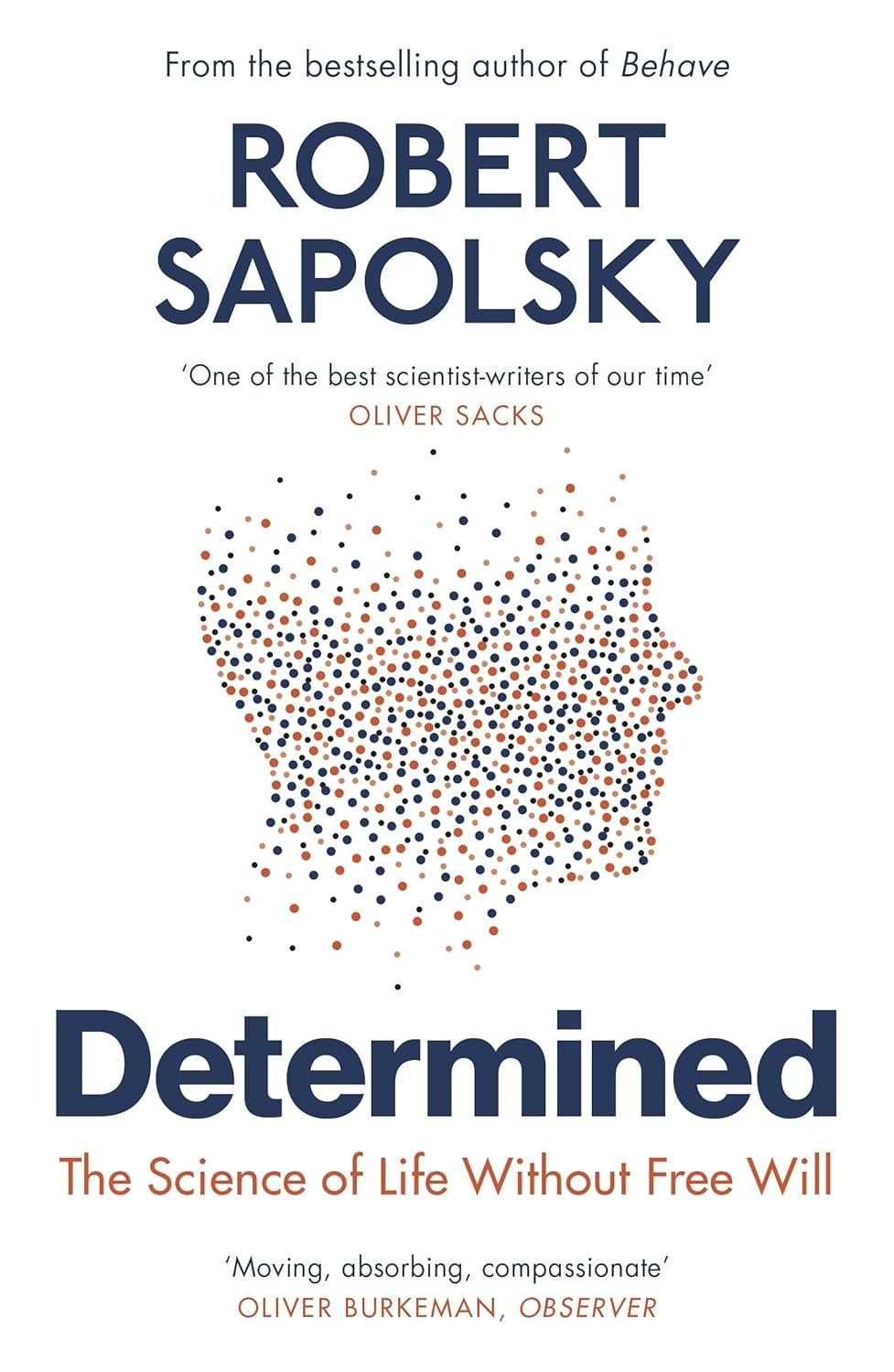
Price: ₹452.00
(as of Nov 30, 2024 04:27:07 UTC – Details)
One of the world’s greatest scientists of human behaviour, the bestselling author of Behave, shows that free will does not exist – and sets out the disturbing yet liberating implications of accepting this fact. The perfect Christmas gift for readers interested in science and the philosophy of life.
‘One of the best scientist-writers of our time’ OLIVER SACKS
What if free will is an illusion? As Robert Sapolsky shows in this masterful account of the science of human behaviour, everything we think and do is caused by the luck of our biology and the influence of our environment, and ultimately both are beyond our control. In a world without free will, we must completely rethink what we mean by choice, responsibility, morality and justice. Sapolsky’s extraordinary book does exactly this, guiding us toward a profoundly fairer, more humane way of living together.
‘A joy to read. It’s impossible to recommend this book too highly. Reading it could change your life’ LAURENCE REES
‘Outstanding for its breadth of research, the liveliness of the writing and the depth of humanity it conveys’ Wall Street Journal
‘Moving, absorbing, compassionate’ OLIVER BURKEMAN, Observer
Publisher : Vintage (18 April 2024); aminjikarai ch-29
Language : English
Paperback : 528 pages
ISBN-10 : 152992006X
ISBN-13 : 978-1529920062
Item Weight : 366 g
Dimensions : 12.8 x 3.1 x 19.9 cm
Packer : ignited books



























Aruna Hariohm –
Amazing
Well written, simple language and enjoyable
Sandeep Bhasin –
Donât miss this one !
“Determined” by Sapolsky is an insightful masterpiece that delves deep into the complexities of human behavior and the intricate workings of the brain. Sapolsky’s meticulous research and engaging writing style make this book a captivating read from start to finish. From genetics to environment, he explores the myriad factors shaping our actions and decisions, leaving readers with a profound understanding of what it truly means to be determined. I wholeheartedly agree with your five-star ratingâit’s indeed one of the finest reads of recent times.
Rupinder Sayal –
Thought-provoking and (potentially) revolutionary
A remarkable, thought-provoking book. Prof. Sapolsky writes very well, and his arguments are quite convincing. The concept of the absence of free will is a fascinating one. It has the ability to evoke mixed feelings of despair and liberation at the same time. I enjoyed reading this book a lot. Even if someone is not convinced about the arguments, the reader will still be compelled to at least reconsider their stance. This is one of those books that will keep occupying your mental shelf space for years to come.
BooksLover –
Thought provoking and only for people who love Science. Others can stay away
Dr. Sapolsky gets it right again. Having read his other books – âBehave and why zebras donât get ulcersâ, would say if one is intrigued by human behaviours of why we do what we do, âDeterminedâ gives the right answer.Not having a strong opinion abt freewill just frees us. We do know one cannot run amok either with our moral and ethical compass ingrained, wish people have cognition for right reasons and not to judge others harshly as he says.
Ashalkaish –
Headstand for Freewill
Turns our world upside down and leaves one spell bound. The Research and writing is lucid and stark. The author painstakingly gets you into accepting the unconventional findings and leaves you challenged. Stimulating and thought provoking every step of the way.
Varky –
Amazing book
Sapolsky, no words for his works that continue to enlighten people who read his book. A poet with scientific edge
Rama –
Easy way of explaining complex biological phenomena, is his style.
Robert Sapolsky is one of those big names in the field, who can explain complex subjects so well that ordinary people like me can understand. I read and listened other books, and lectures of Sapolsky, and he describes complex phenomenon with so much ease that they will stuck with me forever. 🙂 Big fan sir! Thanks a lot for your works!
A –
A mix of very good and awful
I agree with Sapolsky that there is no free will, but this is a strange book – engaging and profound in some parts, boring and meaningless in large sections. At the end, I felt that more than half my time reading this book was wasted. The cover of the book quotes Oliver Sacks calling the author “one of the best science writers of our time”. He is most certainly not that.
Daniel Marc Reicher –
A neuroscientist may convince you that whatever you think is determined by your biological mechanism and has nothing to do with you thinking that you have free choice.
LÃvia –
Livro incrÃvel e chegou sem defeitos.
Fabiola R. –
Todo lo que hace Sapolsky es fabuloso
123321 –
One of the most radical, thought-provoking, moving, poignant, and viscerally haunting books about the human condition I’ve ever read.I don’t know if Sapolsky is correct that humans have no free will whatsoever–it’s his philosophical interpretation of scientific facts and he admits philosophy is not his strong suit–but he makes a damn strong and formidable case not only for no free will but for the abolition of the criminal justice system, discarding the very notions of blame and praise, etc. and what might replace that.I think this book will make anyone a more compassionate and less judgemental person just having had to wrestle with Sapolsky’s arguments and all the scientific facts gathered (and he says most of the studies he cites are from the past 5 years, and he cites a lot).For some, it will probably induce an existential crisis and challenge core beliefs that many people take for granted. Sapolsky himself approaches this with humor trying not to be too depressing and heavy, but also seriousness, he admits where he thinks he could be wrong and he struggles to wrestle with all he’s learned and come to believe about the nature of the universe and our place in it in his many years as a scientist and professor (and before), and the book gets very emotional near the end with Sapolsky talking about his family members killed in the Holocaust, struggling with his own feelings of hate, experiences working with defense attorneys and their clients, etc.The book is chock-full of science but at its core it’s a professor, seeing himself as nothing more or less than another cog in a vast machine, but with a heart that cries out for humans to be more understanding of one another and society to be more just, even if that seems impossible. He himself is aware of the paradox in that and ponders it. And he’s both cynical and very hopeful and optimistic. We used to burn witches, now we don’t. We used to think people with schizophrenia and epilepsy were possessed by demons, now we don’t. Each time subtracting responsibility and focusing on addressing root causes of behavior made society kinder. It’s very political, and I suspect for a long time it’s going to be hard to think about politics again without thinking about this book.That all said, my only major critique is that I feel like looking at the objective facts of “all we are and do is heavily influenced by all that came before and we are built of components that work like machines” and concluding “there’s no room for humans to have any control or agency whatsoever” is a philosophical jump that’s unwarranted. Sapolsky makes a good and sincere case for why he thinks it is warranted, but I think he’s not taking seriously enough what the role of consciousness might be. It seems to me if we have any agency or control consciousness would absolutely be key to that. Ironically, I feel like reading this book gave me more agency, in that knowing all the science and arguments within about constraints on human behavior enables me to make better choices (not to judge someone, to be more patient with them, to be more understanding, for example).I’m “agnostic” on this topic (and about to read Kevin Mitchell’s book arguing the opposite), but it seems to me that humans may still have some small level of control. Like, maybe “free will” is more akin to us being on a raft hastily made by people who had no idea it was supposed to last a lifetime… And we may only have one arm, but we also have a little paddle to change our trajectory ever so slightly and pew pew gun to shoot any monsters that may pop out and menace us along the way. Food for thought!But this book is a clear 5-stars. Any disagreement shouldn’t take away from that. Worth reading and owning.
Axel –
You cannot change, is what Sapolsky says. You ARE changed by input. And certainly, once you let this theory sink in, it provokes some fresh thoughts, about society, about morals, about yourself. Also a perfect present for intelligent friends.